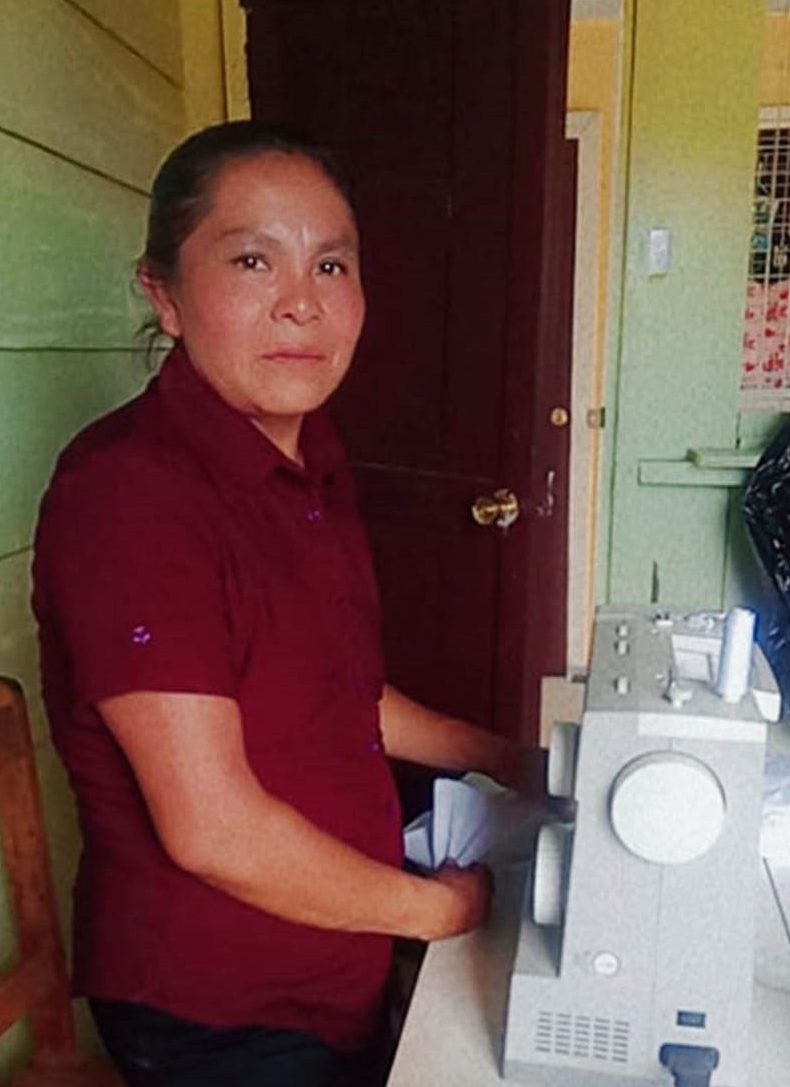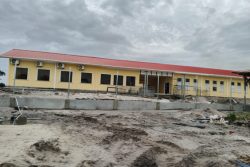Small business owners who constantly fret over the hurdles one never fails to encounter in the pursuit of running a small business just about anywhere in coastal Guyana ought to interact more with their opposite numbers in hinterland communities in order to put their own circumstances into perspective. One businesswoman who can certainly teach her coastal counterparts a thing or two about having the nerve to run a business just about anywhere in hinterland Guyana is Nedrad Joseph who has ‘the gall’ to embrace entrepreneurship in Kamarang, an Amerindian village located at the confluence of the Kamarang and Upper Mazaruni Rivers, in the Cuyuni-Mazaruni Region of Guyana.
Running a successful business in communities like Kamarang requires a particular mindset. You have to begin by taking particular account of where you are, the conditions that obtain and the limitations to what you can accomplish. Beyond those required attitudes, you must sometimes pretend that the boundaries that exist are not there and that you can push yourself beyond the limits that hem you in. Being a seamstress in a community helps. The pursuit ‘ties in’ nicely with some of the particular needs of the community. There are uniforms to be sewn for the schoolchildren and dresses to be created for the women who, even in a hinterland setting, are not unmindful of the ‘feel good’ virtues that attach themselves to ‘looking good.’
As a seamstress, she extended her social relevance beyond values of being a housewife. In a practical sense, she was not just a breadwinner but a prospective businesswoman potentially positioning herself to become a bona fide businesswoman in her own right. It was when her children began to grow and attend school that she began to develop an interest in creating clothing. In circumstances where such skills did not come ‘a dime a dozen’ she benefitted from the advantage of a captive market. There being no skilled teachers in the community she had little option but to embrace self-teaching. For Nedrad, therefore, it was a question of pursuing unorthodox learning options.
Learning to “cut” necessitated the careful ‘taking apart’ of pre-existing ‘tops and dresses’ and painstakingly re-assembling them. In such circumstances, she could hardly boast that some of her earliest efforts were fashioned in the haute couture tradition. Inevitably, however, incremental honing of her skills provided reassurance for observers whose encouragements in turn broadened the base of her market. Ambitions of growth and expansion have always been ‘hemmed in’ by financial constraints. The acquisition of material with which to create the clothing required a financial foundation which she simply did not possess. What this meant was that ‘orders’ by parents for uniforms had to be tendered along with the fabric with which to create the clothing. July and August, Joseph says, are usually ‘good months.’ This was the period during which ‘orders’ poured in.
She recalls the limitations her own skills placed on the extent of the services she could offer. She had never learnt the skills necessary to sew trousers for boys. That apart, the limits to her skills meant that she also had to ‘turn down’ several ‘orders’ for bed coverings, though clothing for worship and the various celebratory events in the Kamarang/Warawatta community helped to supplement her income. There are ‘windfalls,’ too, like the December Guyana Conference of Seventh-Day Adventists three-day event for which she has already received ‘orders’ for clothing. It is at times like this, she says, that she bemoans the fact that electricity is yet to reach her own community as well as other communities, home to the country’s native Amerindians.
Here, she puts the cost of tailored clothing into perspective, pointing out that a gallon of fuel costing $2,500.00 would provide her generator with approximately one hour of service. It is a clinical comparison between how coastal and interior communities live. Mind you, while it is possible for her to have her home access electricity from the ‘government compound,’ investment in the infrastructure to render the ‘connection’ possible, is simply beyond Nedrad’s means. The solar option, too, is unaffordable. Family responsibilities and her tailoring responsibilities aside, Nedrad must also summon the stamina to serve as a security guard to ‘bring in’ additional income.
The additional income is necessary in order to support four in-school children, two of whom attend secondary school at Waramadong and a further two who are at Primary School at Kamarang. Her eldest child is pursuing post-secondary school training. Joseph told the Stabroek Business that last September she benefitted from class executed by the Ministry of Human Services and Social Security where participants were tutored in some of the skills necessary for the sewing of pillow cases and selected clothing. She says that she is awaiting the commencement of the second round of classes where trainers will instruct them in the creation of other types of ‘home use’ items. She is keen to learn the skills associated with new types of clothing and other utilitarian items; understandably, the creation of the male trouser is high on her list of preferences.








